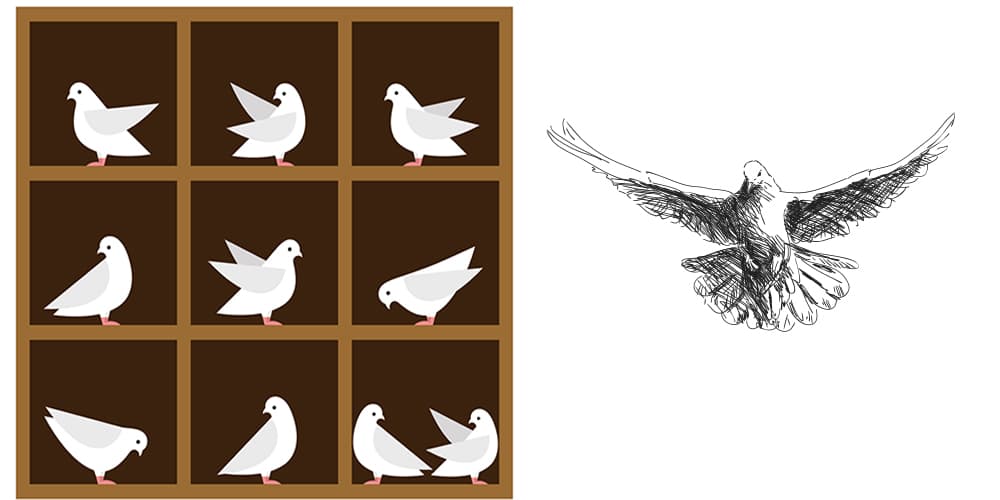
“In a wicked world, relying upon experience from a single domain is not only limiting, it can be disastrous.”
— David Epstein
For my entire career, I have been working to create, nurture, and reclaim the cultures of the organizations and leaders whom I serve. I didn’t realize that exactly until recently.
The Unwritten Rule for consultants has always been that if you want to succeed in your market and sell your services, you have to become the best in the industry, in the use of a specific process-tool, or in a field of study — like quality or service.
I have always resisted approaching my consulting work so narrowly. Such a narrow focus might make a consultant more proficient, faster, and better able to become well-known in a tightly-defined niche market. But that doesn’t work with who I am. I crave variety. I love the transfer of learning from one kind of organization to the next. I have always explained my preference for being a generalist practitioner analogously, saying, “If I had been a physician, I would have chosen to be a GP – birthing babies, caring for their grandparents, and handling everything in between.
I recognize that a business organization functions like a human system. Regardless of its size or age or industry, organizations need to have some essential working parts and key operational elements. I am able to see the whole system and can — by asking questions and listening— find the connections and disconnections.
Yet, the reality is that markets buy widgets; and consulting widgets take the form of strategic planning, leadership and managerial development, growth strategies, systems design, learning, human resources and so much more. People understand finite packaging, not so much infinite packaging. The finite consulting project is easy to scope and price. Thus, finite consulting is easy to sell and apply. Offering to be a ‘culture coach’ — an infinite packaging if there ever was one —is a hard sell.
I say all of this because I have been selling the elements of fostering workplace culture for the breadth of my consulting career – just in small increments of interventions. Thirty-five years later, the market has caught up to me —focusing on culture is in vogue.
And I am thrilled.
It is now acceptable, even desirable, to speak about culture. To put it front and center as the project, and champion the importance of having a vibrant, aligned culture, as well as, all the fundamentals of good organizational systems. These are things I have been promoting, proposing, and doing for the entirety of my career. And now it’s hot.
I thought this lengthy preamble about the importance of culture was needed before I asked these question which have been weighing heavily on my mind.
“What is the impact on your organization’s culture after working virtually for almost a full year?”
“Are you seeing any cracks to your hard-won culture efforts as individuals — operating in their functions physically distanced from each other — start to follow old pathways that lead to silos, or actions out of alignment, or miscommunication and misunderstandings?
“Is anyone voicing their sense of fatigue or having lost a sense of belonging?
“Has the work become more transactional and less relational? If so, is that showing up in issues of quality, service, safety, trust and respect?
I know the value of a robust culture and I fear that if we aren’t tending to this soft, less concrete and visible ingredient of organizational success, that it might slowly bleed away without our knowing.
On the other hand, if we have grown our organization with new talent in this last year while working remotely, have we effectively and intentionally brought the new teammates into our culture with ample orientation?
A leader — whom I enthusiastically supported in strengthening his organization’s culture that was then disrupted by an acquisition — said to me, “I never dreamed that a culture could be so fragile.” Culture is similar to trust. Both are hard to see but easy to feel and each take a long time to build a strong foundation; but they both can be broken or betrayed in one swift action, causing all that was built to be lost.
Has this pandemic been a tsunami to our organizational cultures? Has it weakened the strength of our family systems and communities as well?
What is the importance to ‘breaking bread together?’ Of convening to plan or vision, to resolve and heal, or to learn and celebrate? Can we do this well virtually?
How do we live and act on our stated values in such an explicit way that everyone knows that the fabric of our culture is still strong?
Have you been able to use the collective experience of this past year to strengthen your culture, your connectivity, your commitment to the organization’s mission/values and vision? Have you found new ways to reinforce the tenants of your culture?
There is no doubt that we have adapted, flexed, and reinvented ourselves to respond to the challenges of this year-plus of events. Was it your culture that helped to hold things together?
The image that just came to mind was one I have seen captured repeatedly over and over and shared after any battle in war. When the smoke clears people always look to see if their flag is still upright and waving , despite being tattered and frayed.
Metaphorically, is your culture flag still intact? Is there a way to rally around what is important to your organization? To pause to appreciate the gains and losses before you solider on to the next battle, the next project?
I admit. All of these words have been presented to ask these simple questions.
“How are you?”
“How is your team?”
“How is your family?”
“How is your organization?”
“Have you come through this great storm with your highest purpose still guiding you?”
“How in the spring of our season will you see new shoots of your cultural breaking through to the sun-light of the next season of our experience?”
Leslie
“I used to believe that culture was ‘soft,’ and had little bearing on our bottom line. What I believe today is that our culture has everything to do with our bottom line, now and into the future.”
– Vern Dosch, author, Wired Differently


Recent Comments